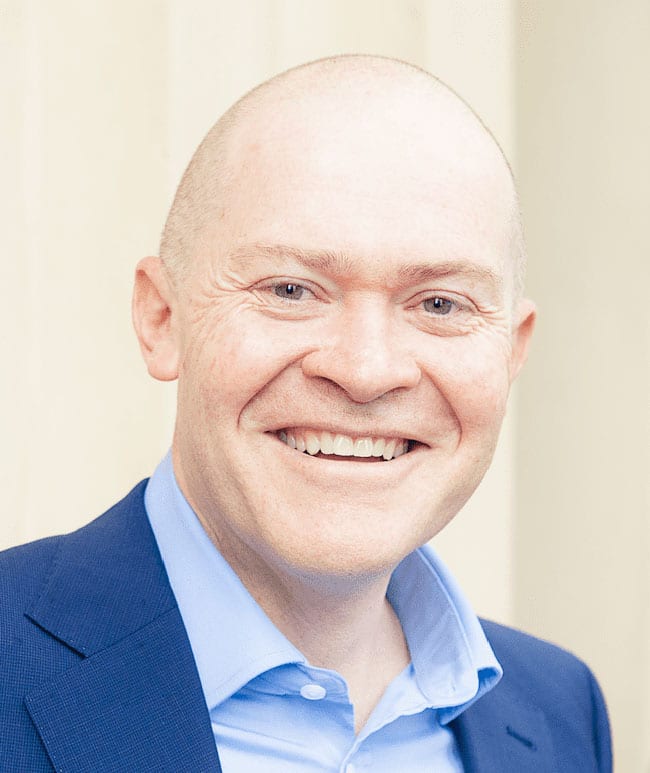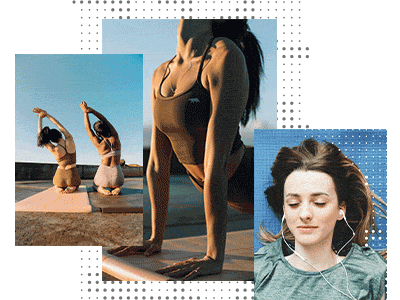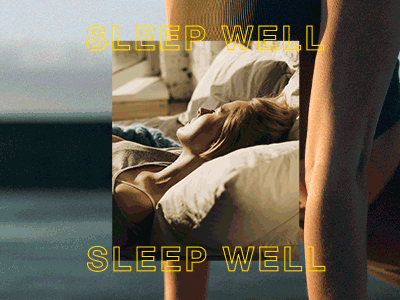Sleep – it’s the ultimate tease. It pops up when you least expect it, but it’s nowhere to be seen when you’re looking for it. If you’re dreaming of better sleep, this one’s for you.
Many of us can admit to blaming a mistake on a bad night’s sleep. Whether it’s running late to a meeting, forgetting to charge your Fitbit, or skipping the gym – sleep (or lack of) cops a lot of blame from us. In fact, according to the Sleep Foundation, up to 45% of Australians aren’t happy with their sleep.

“We need to show sleep a little more respect,” reveals Dr David Cunnington, a sleep specialist from Melbourne. From studying at Harvard, USA, to working with sporting teams, airlines and NASA, Dr Cunnington knows sleep.
Here are some tips from Dr Cunnington to help improve your relationship with sleep.
It’s not just a pretty face
We all need our beauty sleep and you can certainly see the glowing effect a good night’s sleep has on our appearance. But, sleep is important for your mental and physical health too.
Sleep can help your mental clarity by improving your learning, memory and concentration skills. It can also help you to control your emotions (especially if you’re not a morning person). “If we’ve not slept well, it can very quickly have an impact on our emotional stability – how quickly we go from 0–100,” Dr Cunnington explains. At an extreme, these constant changes in mood can lead to anxiety and depression.
Whether it’s weight loss, muscle gain or just energy to get to the gym, sleep can help you smash your fitness goals. When you sleep, your body releases growth hormones that help your muscles recover and regenerate, in time for your next workout.
On the other hand, not sleeping well can increase your appetite and risk of obesity. “We think that poorer sleep increases the carbohydrate craving and intake of calories that in turn leads to weight gain over time,” Dr Cunnington says. Lack of sleep has also been associated with a number of physical health conditions, including high blood pressure, type 2 diabetes and Alzheimer’s disease.
Needless to say, the health and performance benefits of sleep should be a priority for all, regardless of your fitness goals.

Get to know your sleep
Whilst your mind is resting at night, your body is working hard to restore itself. The brain in particular clears out waste products that have built up, so it can start afresh the next day.
Each phase of sleep is important to restoring your physical and mental health, including both rapid-eye movement (REM) and non-REM sleep. Your sleep cycle begins with light, non-REM sleep, where you tend to replay recent events before falling into a deeper sleep. Around 90 minutes in, you enter REM sleep where your brain is more active and you may experience more intense dreams for around 10 minutes before coming up to the surface again.
“It’s totally normal to come up to the surface 3–4 hours after sleep and feel quite alert, almost like you could start the day,” Dr Cunnington says. “It’s not about how many minutes we’re in each type of sleep. What’s more important is that it comes in a predictable sequence in and out of REM and non-REM sleep.”
Get to know your sleep by making a note of your sleep patterns. Use a sleep monitor to help understand how your sleep unfolds during the night, and how regular your sequence is.

Remember, it works both ways
We need sleep to give us the energy to exercise, but we also need good health and exercise to help us sleep.
“Recognise that there’s no off-switch at night to wash away the sins of the day,” Dr Cunnington says. “If you haven’t been managing your health during the day, there’s nothing magical that happens at night. Sleep is a reflection of the day.”
So, if you’re high-energy during the day, it’s unrealistic to expect your body to be instantly calm at night. In this case, it might be helpful to introduce some quiet time into your daily routine through mindful exercise such as yoga or pilates . On the other hand, if you’re working at home all day, participating in social activities such as team sports or group exercise classes might be a welcome break.
“Exercise is guilt-free time off,” Dr Cunnington says. Just 30 minutes of exercise a day can benefit your sleep by improving your physical health and allowing you to escape from the day’s stress. The good news is that you can do this at any time of the day, as long as you allow a little more time to shut down after an evening workout.
Create healthy boundaries
If you’re wondering how to fall to sleep when stressed or anxious, it’s a valid concern in today’s current climate. With more people enjoying flexible work arrangements, you may find it difficult to pull yourself away from the stress of the job when working from home.
“It’s important to draw a boundary between our waking lives and sleeping lives. Work, sleep and rest have all become a bit intertwined in 2021, and there’s no clear boundaries between these things,” Dr Cunnington reflected.
A good way of marking a boundary is doing an action to signal that you’ve clocked off for the day. It can be as simple as shutting down your laptop, changing into PJs or taking a shower. You can also take some time to wind down from the day with an activity such as reading, yoga or meditation . Unlike watching TV or scrolling endlessly on the ‘gram, these activities are linear and won’t have you jumping from one thing to another.

Don’t try too hard
The most common mistake people make when going to sleep is trying too hard. “The more we over-analyse sleep or try hard with sleep, the worse it goes,” Dr Cunnington says. “Sleep is like a cat, but we treat it like a dog – it’ll come when it’s ready!”
For those wondering how to fall asleep quicker, the answer is never the same for everyone. The key is finding the right balance between caring too much and giving sleep the space it needs. This means tracking your sleeping cycles, understanding what triggers negatively or positively affect your sleep, and establishing healthy habits to support this.
“I want people to be respectful about sleep,” Dr Cunnington says. “Respectful enough that they allocate sufficient time and opportunity for sleep. But then, once they’ve shown sleep that respect, I want them to care less about what happens in that space.”
It’s your typical rubber-band theory – show sleep you’re interested but don’t chase it.
Following these above tips, you’ll soon be having the sleep you deserve. As a positive flow on effect, this means you’ll be more energised during the day to continue your healthy habits through sport and exercise.
Check out rebel sport’s range of yoga mats , Garmin smartwatches and other relaxation and sleep tracking tech to help invest in your sleep.
Now, time to catch some Z’s.
Top 5 Tips for Sleep Success
Still struggling to nod off? Try making these simple changes to your daily routine to improve your sleep:
1. Say yes to daytime sunlight: Soaking in some rays helps your hormones register when it’s evening and triggers our bodies to produce the sleep-inducing hormone melatonin.
2. Say no to bright lights at night: Bright lights can signal to our brain that it’s daytime – time to play! Try to use candles, light dimmers and salt lamps instead – any form of lighting that’s softer will help cue our body’s sleep-wake cycles.
3. Avoid coffee after 2pm: Nuff said.
4. Lavender love: This sweet-smelling essential oil is known for its relaxing properties. Pop a few drops into a diffuser or apply to pulse points following instructions.
5. Sweat for better sleep: Just like parents taking the kids to the park to ‘tire them out’, this strategy can work wonders for us kidults, too. Get moving and break a sweat to help burn off that excess energy and clear your mind so you’re ready for a good night’s sleep.
*The information on this site is not medical advice. It is generic and does not take into account your personal circumstances, physical wellbeing, mental status or mental requirements. Any medical questions should be referred to a qualified healthcare professional.